Three current graduate students, two incoming graduate students and three undergraduates have been awarded the prestigious National Science Foundation Graduate Research Fellowship to support their graduate studies. The award provides the students with three years of financial support ($34,000 annual stipend and $12,000 cost-of-education allowance to the graduate institution) for graduate study that leads to a research-based master’s or doctoral degree in chemistry, computer & information sciences, engineering, geosciences, life sciences, materials research, mathematical sciences, physics & astronomy, psychology, social sciences, and STEM education & learning research.
“I am pleased at the success our students have had in competing for this prestigious award,” Graduate College Dean John Keller says. “The University of Iowa Graduate College is committed to providing the resources and support our students need to compete at the highest levels.”
Graduate Student Awards
Samantha Chiu

Advisor: Bob McMurray
Undergraduate: Macaulay Honors College at CUNY Queens College, psychology
Chiu’s research uses neuroimaging techniques (EEG) to study speech processing. She plans to study the neural pathways between speech perception and speech production to form the foundation of clinical research for aphasia treatment. Her work combines EEG and machine learning as a novel tool to study auditory word recognition over time. Machine learning can find patterns in EEG data to make predictions about what word a person heard and recognized. She will use these tools to study speech perception in children with the goal of understanding how typical language and speech perception develop and identifying why populations with language disorders struggle with language.
Flannery Currin
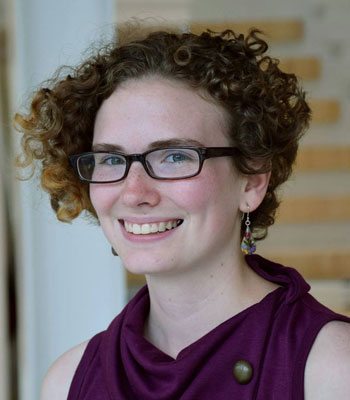
Advisors: Kyle Rector and Juan Pablo Hourcade
Undergraduate: Earlham College, computer science and psychology
Currin’s research interests focus on Human-Computer Interaction, and specifically aim to increase the accessibility of technology to people with intellectual and developmental disabilities or other disproportionately underserved populations. Her work is largely motivated by her experiences growing up with her older brother who has Down syndrome. She hopes to continue this line of research in her future career, either in academia or in a research position in the tech industry.
Riley Post
Incoming graduate student, Department of Civil Engineering
Advisor: Witek Krajewski
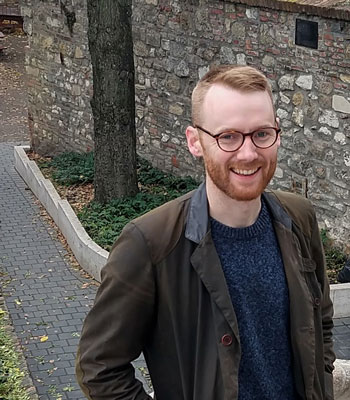
Since graduating from the UI with his BSE and MS in civil engineering in 2010 and 2011, respectively, Post has been working for the Rock Island District of the Army Corps of Engineers in the Water Control Section. His team maintains 24-hour operation of 3 flood control reservoirs and 20 navigation locks and dams across 4 states. He has been recognized as a regional subject matter expert in reservoir operation and a national subject matter expert in flood response. His continued graduate study will focus on Riverine Flooding at IIHR – Hydroscience and Engineering. His will focus on whether using gated outlets and gaging stations to optimize wetland and pond storage areas throughout a river basin can reduce flood impacts at downstream locations. Building typical reservoirs requires large-scale land acquisition, massive environmental impacts, and substantial cost. Post hopes to demonstrate that a system of small ponds, holding areas, and wetlands can be actively operated in real time to reduce peak flows, thus providing a useful new tool for flood management.
Tracee Saunders
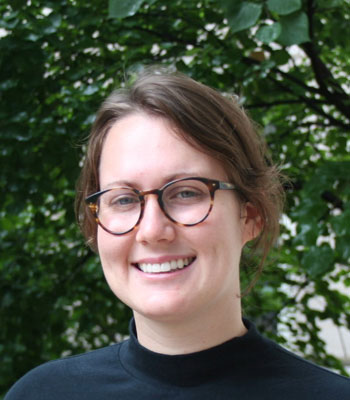
Advisor: Fred Boehmke
Undergraduate: University of North Carolina at Chapel Hill, public policy and U.S and Global Health
Saunders studies the political determinants of inequities in access to healthcare in the U.S. Specifically, she focuses on how variations in state Medicaid policies mean people in some states are better able to access health care than those in other states. A reputation for strong quantitative training along with the unique concentration of scholars studying U.S. state politics, health, and social inequality drew her to the UI political science department. Her goal is to pursue a career in academia as a scholar and professor.
Andrew Thiel
PhD student, Department of Biomedical Engineering
Advisor: Michael Schnieders
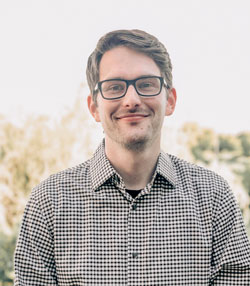
Thiel’s research focuses on the characteristics of proteins as they apply to experiments and simulations. A key challenge with proteins is their constantly changing nature in response to their environment. Thiel is interested in developing a model that simulates proteins as their protonation states change with their environment. His work involves using GPU acceleration and Argon, Iowa’s high performance computing cluster. Thiel would like to promote sustainability through his research and his work with proteins could apply in recycling with industrial enzymes.
Undergraduate Student Awards
Russell Martin
Major: Biomedical Engineering, biomechanics track
Graduate School: Stanford University, mechanical engineering
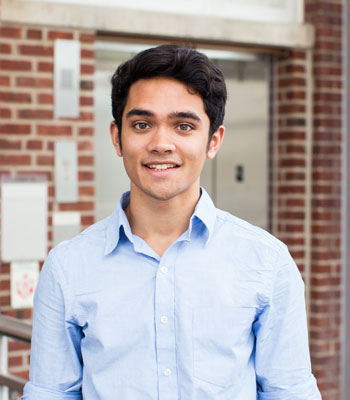
Aaron Silva Trenkle
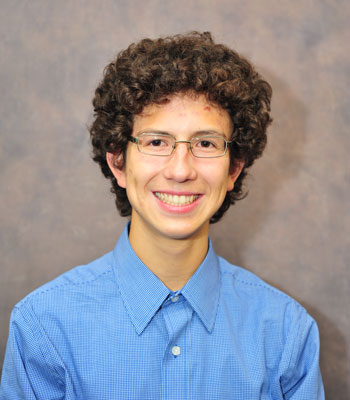
Minor: German
Graduate School: Georgia Tech and Emory University, Biomedical Engineering
During his four years at the University of Iowa, Silva Trenkle has been involved with research in Dr. Fatima Toor’s lab and Dr. Aliasger Salem’s lab. He spent two summers conducting research in Germany through the Research Internships in Science and Engineering (RISE) program sponsored by the German Academic Exchange Service (DAAD.) Silva Trenkle’s future research proposes a method to use nanoparticles to induce an immune system response to target tumors to make patients cancer-free. His research proposal presents a unique approach to cancer immunotherapy. It uses a nontoxic delivery method, can release payloads to specified cells, and provides a method to activate an immune response against cancer cells.
Jacob Thompson
Major: Biomedical Engineering
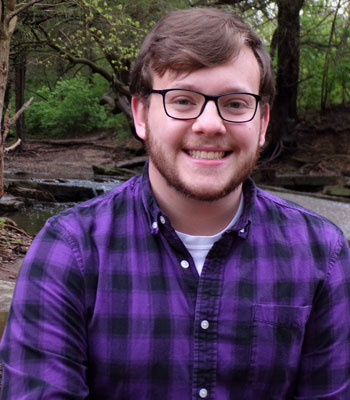
Thompson has worked in Dr. Kristan Worthington’s precision biomaterials lab and is interested in tissue engineering and regenerative medicine research. The lab develops cellular support scaffolds for transplanted photoreceptor cells with the goal of restoring sight to people with age-related macular degeneration. Cellular support scaffolds aid in transplanting these cells by giving them something to adhere to and vertically orienting them to mimic the natural structure in the retina. He is currently studying how changing properties of the scaffolds influences cell behavior. Understanding how scaffold stiffness, material choice, and structure, affects the cells is a crucial step toward being able to test the scaffolds and transplantation process in animal models. Thompson’s goal is to work for a company that specializes in tissue engineering.
Honorable Mention
UI graduate students Bess Glickman, Camille Hanes, Hayley Petras, and Kelley Withers received Honorable Mention recognition. This is considered a significant national academic achievement, demonstrating their great potential and excellence as researchers. Glickman and Hanes are a PhD student in the Interdisciplinary Graduate Program in Neuroscience. Petras is a PhD student in the Department of Chemistry. Withers is a PhD student in the Integrated Biology (iBio) Graduate Program.